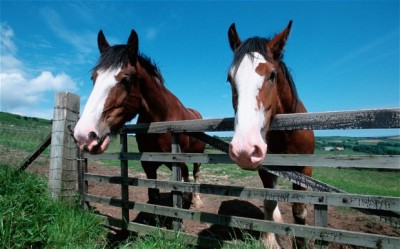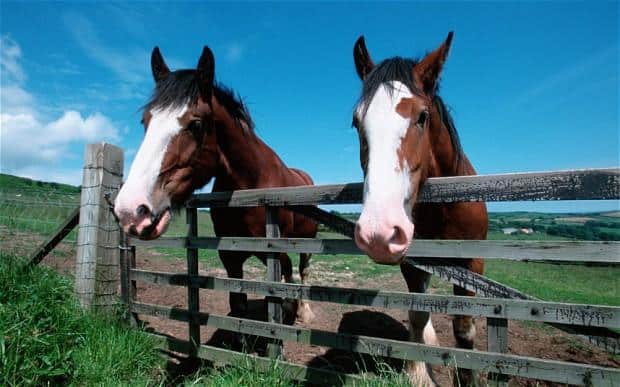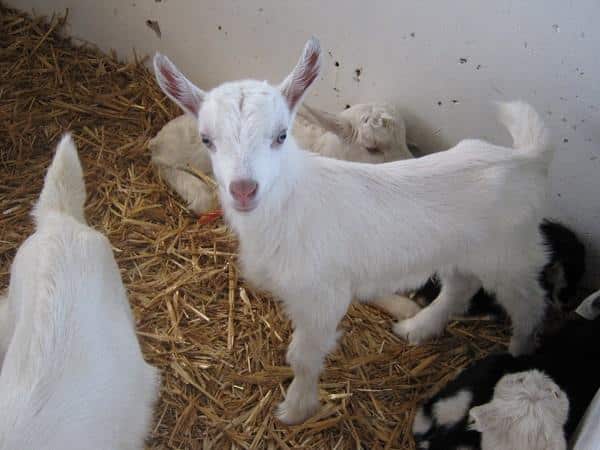
The food industry might be even more corrupt and unreliable than many think. Three different British supermarket chains have been caught selling horse meat to consumers as “beef” in recent months.
The horse meat scandal involves three of Britain’s largest grocers, and at least one of them also operates in the United States. Americans might need to pay attention to this scandal.
The scandal started in January when Tesco, Britain’s largest supermarket chain, was caught selling hamburgers that contained horse meat. The burgers came from an Irish meat-packing plant.
Some of the horses butchered at the plant might have been purchased in the United Kingdom. Naturally, the animal-loving British are not very happy about the horse meat scandal.
In February, DNA testing confirmed that some frozen dinners sold at Aldi, a discount grocer in Britain, contained 100 percent horse meat. The horse meat apparently came from a French company that had purchased it in Romania. Shortly before that, lasagna sold at another chain called Findus was found to contain horse meat, as well.
Said a spokesman for Aldi, “This is completely unacceptable and like other affected companies, we feel angry and let down by our supplier. If the label says beef, our customers expect it to be beef. Suppliers are absolutely clear that they are required to meet our stringent specifications and that we do not tolerate any failure to do so.”
Findus denied it knew about the horse meat.
“Findus want to be absolutely explicit that they were not aware of any issue of contamination with horse meat last year,” it said in a statement. “They were only made aware of a possible August 2012 date through a letter dated 2 February 2013 from the supplier Comigel. By then Findus was already conducting a full supply chain traceability review and had pro-actively initiated DNA testing.”
Could Famine And Hunger Come To America?
The discoveries prompted British hospitals and schools to check the food they served for horse meat. A major manufacturer of baby food started testing its products for horse meat as well. So far horse meat has not turned up elsewhere.
In recent days the British National Audit Office has warned another horse meat scandal could be on the horizon due to budget cuts and cuts in food inspection.
Dangers from horse meat
There is also a possible danger to health. The Guardian newspaper reported that 5 percent of the horse meat tested positive for a veterinary drug called phenylbutazone (or bute), which is so dangerous that it is not supposed to be given to humans.
Some of the meat might have been supplied by organized crime. The Guardian reported that Polish and Italian mobsters are making millions of dollars by labeling horse meat and other questionable meats as beef and selling it to food processors.
British police are now investigating to see how much criminal involvement there is in the meat packing industry. They may have a hard time doing that, because much of Britain’s meat now comes from other countries, such as Spain and Eastern Europe.
In the scam, criminals pay executives at food processing plants and officials to label cheaper meat as beef. The crooks then charge the company the same price as they would for beef and pocket the difference. Even some government inspectors were apparently in on the scam.
That would indicate that there is widespread fraud in the food supply system in Europe, particularly in food shipped in from other countries. Since large amounts of our food is now imported from Mexico and other countries, Americans might also need to be concerned.
How to protect your family
There are some steps that you can take to keep horse meat off your family’s dinner table. These steps include:
- Stop buying processed, prepackaged, and frozen foods, such as TV dinners.
- Cook as much of what your family eats from scratch as practically possible.
- Only buy fresh meat directly from the butcher’s counter, in the supermarket, or a local butcher’s shop.
- Locate an alternative source of meat, such as a local butcher’s shop or a local rancher. There are farms and ranches that sell meat directly to the public. Try and find one in your area.
- Consider raising your own pigs, chickens, or cattle as an alternative. If a horse meat scandal breaks in the U.S., selling natural meat could be a good source of income.
- You can always augment your family’s meat supply the way our grandfathers did, by hunting.










